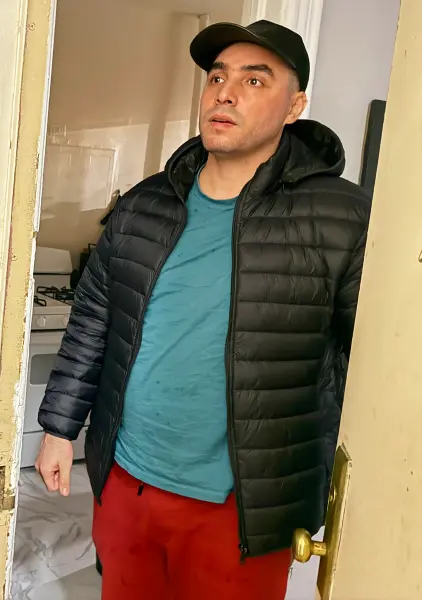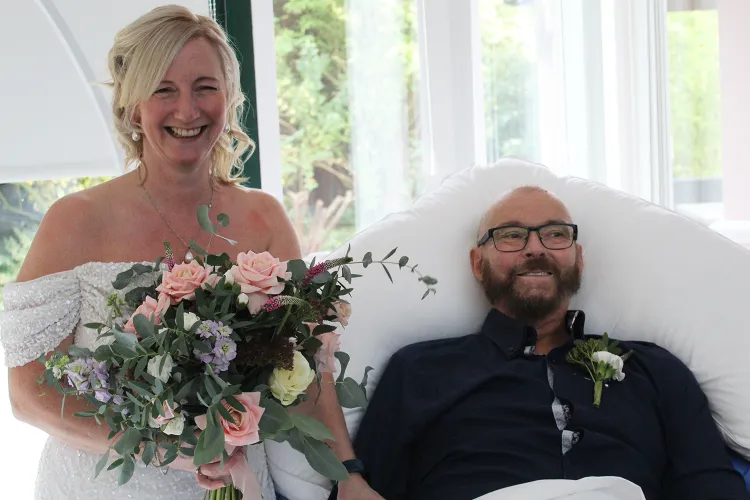She Thought It Was Just a Taxi Ride — Now This NYC Woman Says She Fled the City After a Cabbie Allegedly Assaulted Her and Was Allowed Back on the Road
On a warm evening in Manhattan — the kind where the glow of Times Square feels almost cinematic — Maile Bartow tried to do what millions of people do every day in New York City: get home safely in a yellow cab. She had taken taxis countless times without a second thought. The familiar hum of traffic, the bright screen of the meter, the recognizably worn seats of a city icon gave her the usual sense of comfort. But what happened inside that cab last summer, according to Maile, changed the course of her life and left her so shaken that she eventually fled the city altogether.

Her story, now at the center of a growing controversy around taxi safety and prosecutorial discretion, has sparked new questions about how alleged victims of in-ride assaults are protected — and whether the system meant to safeguard them is falling short at critical moments. Court documents and sources with direct knowledge of the case describe two separate allegations involving the same driver, a man working without a partition or camera, both features designed to reduce risks for drivers and passengers alike.

The driver, identified in records as an Algerian immigrant licensed to operate a yellow cab in Manhattan, was accused in two different incidents of touching women inappropriately while they were seated in the back of his taxi. While immigration status has no relevance to guilt or innocence, it does appear in the publicly filed documents because of the way the city’s licensing forms are recorded. What matters most to the women involved — and to the larger public conversation — is what they say unfolded on those rides.
For Maile, the moment that turned an ordinary commute into trauma began with the sudden, disorienting closeness of the man driving the vehicle. She describes him as reaching back into the passenger area, closing the space without warning, leaving her frozen, confused, and then terrified. She recalled that his hand touched her in a way she immediately recognized as not accidental, not ambiguous, and not remotely acceptable. “I was so scared,” she later said, reliving the moment that made her world shrink to the inside of that cab.

She managed to get out of the taxi, shaken and unsure of what would happen next. Like many victims of unexpected and deeply violating encounters, her first instinct was not anger but fear — fear that she had been targeted, fear of retaliation, and fear that reporting the incident might expose her to more emotional strain. But as the hours passed, fear hardened into something else: the realization that she needed to speak up.
When she contacted the authorities, she was told there was another complaint — a second woman, in a separate incident, who reported a nearly identical experience with the same driver. The similarity between the two accounts alarmed investigators. Multiple sources familiar with the cases say the pattern was difficult to ignore.

Yet, despite the concerns raised by both alleged victims, the Manhattan District Attorney’s Office, led by Alvin Bragg, declined to prosecute the cabbie on the charges that the women believed were necessary for their safety and justice. Court documents show that prosecutors opted for lesser charges that allowed the driver to avoid serious consequences. Instead of having his taxi license suspended or facing significant legal repercussions, he remained on the road.
For Maile, that decision felt like a second blow — one she describes as even more destabilizing than the incident itself. “It was like they didn’t believe me,” she said privately, reflecting on the moment she learned he would continue driving passengers around the city. Her voice carried not just disappointment but the unmistakable ache of someone who expected the system to protect her and felt instead that she had slipped through one of its cracks.
The question of how sexual misconduct allegations are handled in New York City has become increasingly scrutinized in recent years. Advocates for victims often argue that these cases require careful listening, trauma-informed approaches, and consistent follow-through. Critics of current policies say the DA’s office has leaned too heavily toward downgrading charges in what they describe as an effort to avoid clogging the system with cases they consider difficult to win. Supporters of DA Bragg counter that each case must be evaluated on the available evidence and prosecutorial standards.
Still, the emotional cost for people like Maile can be profound.

She told friends that after learning the driver had been allowed back behind the wheel, she stopped taking taxis altogether. She found herself looking over her shoulder even during daylight hours. The anxiety began creeping into parts of her life that had nothing to do with transportation — grocery shopping, going out with friends, and even walking home from dinner became fraught with fear. Nights felt heavier. Silence felt threatening. Familiar streets felt foreign.
By early fall, Maile had made a difficult decision: she would leave New York. It was not impulsive. It was not dramatic. It was the quiet calculation of someone who no longer felt safe in her own routine. The city she once loved — its energy, its promise, its boldness — had become tangled with a moment she could not forget.
For the second woman involved in the allegations, the situation also carries long-lasting consequences. Sources say she felt strongly that speaking up was the right thing to do, especially when she learned she was not the only one. Yet the lack of prosecutorial action has made her feel, in some ways, silenced by the system that was supposed to amplify her voice.
The Taxi and Limousine Commission (TLC), which regulates yellow cabs in New York, typically requires vehicles to have safety partitions or cameras installed, but enforcement can be inconsistent. During routine inspections, missing equipment may result in penalties or citations, but in daily practice, passengers often do not know whether their cab meets every regulatory requirement until they’re already inside. That, advocates note, is part of the broader vulnerability in the system.
Public defenders and civil rights attorneys emphasize that every accused individual deserves due process and fair consideration under the law. They warn against making assumptions or issuing judgment without the full picture. But they also argue that when multiple complaints emerge, especially those involving vulnerable passengers, authorities must take extra care to assess whether returning a driver to active service places others at risk.
As debate surrounding the case intensifies, Manhattan DA Alvin Bragg finds himself once again under scrutiny. His tenure has been marked by ongoing controversy over charging decisions, bail reform implementation, and case downgrades — issues that have drawn both praise and criticism. Supporters argue that he is committed to fairness and evidence-based prosecution. Critics claim cases like this one highlight broader concerns about public safety.
In the meantime, the cabbie continues to drive legally in New York City. His attorney maintains that he denies wrongdoing and has complied with all legal directives. With no criminal conviction, he remains free to work, and the TLC has not taken disciplinary action based solely on allegations.
For Maile, however, the emotional journey is still unfolding. She has shared her story not to punish, she says, but to prevent others from experiencing what she endured. She hopes that someone will hear her and recognize that safety should not be negotiable — not in one of the world’s busiest cities, not in the back of a taxi, not ever.
Her message resonates with countless women who understand the unique vulnerability of being alone in a vehicle with a stranger. It taps into a quiet but powerful fear many have felt: the fear of something happening in a moment when escape feels impossible.
What Maile wants now is simple in principle but complicated in practice — accountability, transparency, and systems that act swiftly when patterns emerge. She wants other New Yorkers, especially women navigating the late hours of the city, to feel safer than she did. And she wants the institutions tasked with protecting them to recognize when a decision sends a message stronger than words.
The yellow cab remains one of New York’s most recognizable symbols — a bright, iconic reminder of the city’s heartbeat. But for Maile Bartow, that symbol now carries the weight of a night she cannot forget. Her story is not an indictment of every driver, every ride, or every system. It is a deeply personal account of what it means to feel unprotected in one of the world’s busiest cities, and to hope that something changes before someone else becomes the next story in a headline that never should have existed.



